My Wild Nettle and Ginger Balm is a fabulous homemade remedy for Joint Pain, stiffness, Aching muscles, inflammation and Arthritis. A chemical free remedy that you can make at home with no fancy tools required and just 4 Ingredients!
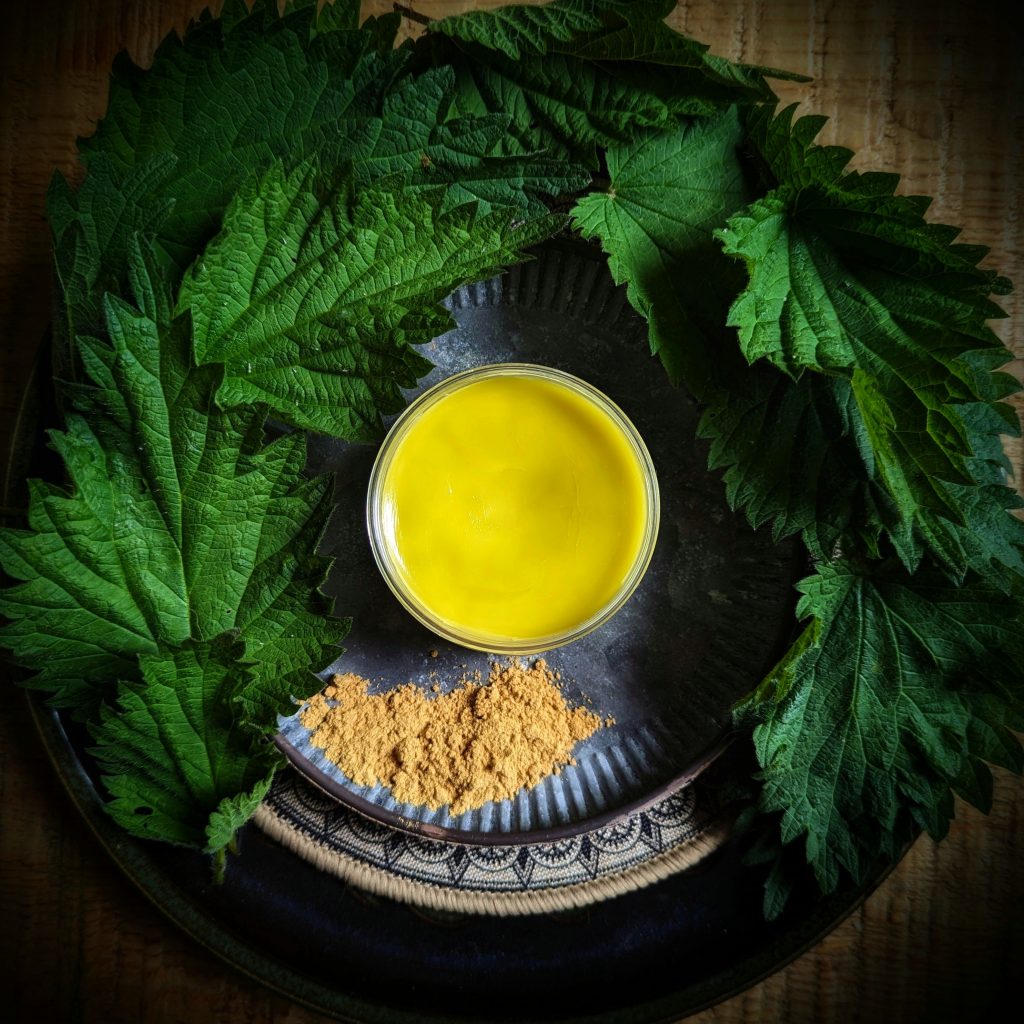
This post may contain affiliate links please see my disclosure policy
Homemade Pain Relief!
Doesn’t that sound good?! Harvesting Wild plants for use in homemade remedies brings me a lot of Joy! I love the whole process of foraging, washing and preparing my potions! The end result is always a proud moment!
But, I don’t just go out and harvest any old plant! I first think about the properties I want each healing potion to have, the ailments it needs to help and the person its intended for! This Wild Nettle and Ginger Balm for Example- was made for my Husband.
From time to time he suffers with joint pain which is sometimes exasperated by his long commutes to and from work. Several Hours sat in a sedentary position can really take its toll, so I made him this balm to keep in his car incase he needs some relief. He tells me it definitely does the trick!
Why Nettle and Ginger?
I chose both these ingredients for specific reasons, each one bringing valuable properties to the table…
Nettle
Nettle or Urtica dioica, is a wonderful plant! But highly misunderstood! -This stinging plant is usually avoided and rarely utilised for its vast healing properties. Take Nettle Tea for example..its fabulous stuff! A very effective oral tonic that can also be consumed to manage joint pain, sore muscles and Arthritis
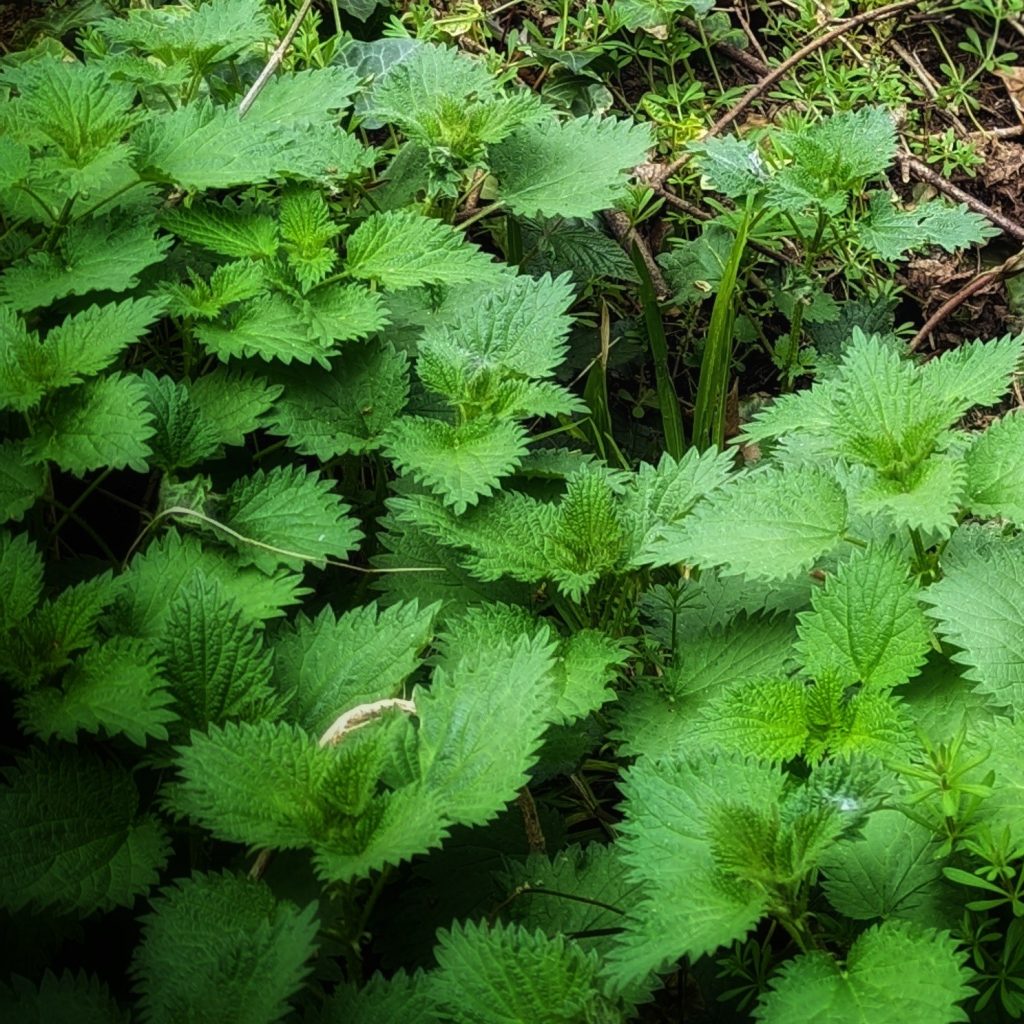
What are the Benefits of Nettle when Applied to the skin
Now, I wouldn’t go and rub nettle leaves directly on my skin! I would come out in painful itchy bumps almost immediately caused by the stinging trichomes on the leaves! But when Nettles are infused in an oil, like in this recipe…their benefits are remarkable!
The stinging trichomes on the leaves of Nettles contain a mixture of acetylcholine, histamine, formic acid and serotonin. When they brush directly on the skin, they break off and enter the flesh, instantly reacting with the blood causing a rash, burning and itchiness.
But! When Nettle Leaves are infused in oil a different reaction occurs! When a Nettle Infused Oil or Balm is applied directly to an affected area of the skin it causes increased blood flow and temperature to the site of application within minutes! Which in turn eases Joint and Muscle Pain and helps ease Arthritis inflammation.
Ginger
Ginger root has been used for thousands of years in herbal medicine, the Chinese especially used it for all sorts of ailments including Arthritis, Muscle pain and as an anti-nausea and anti-vomiting medication.
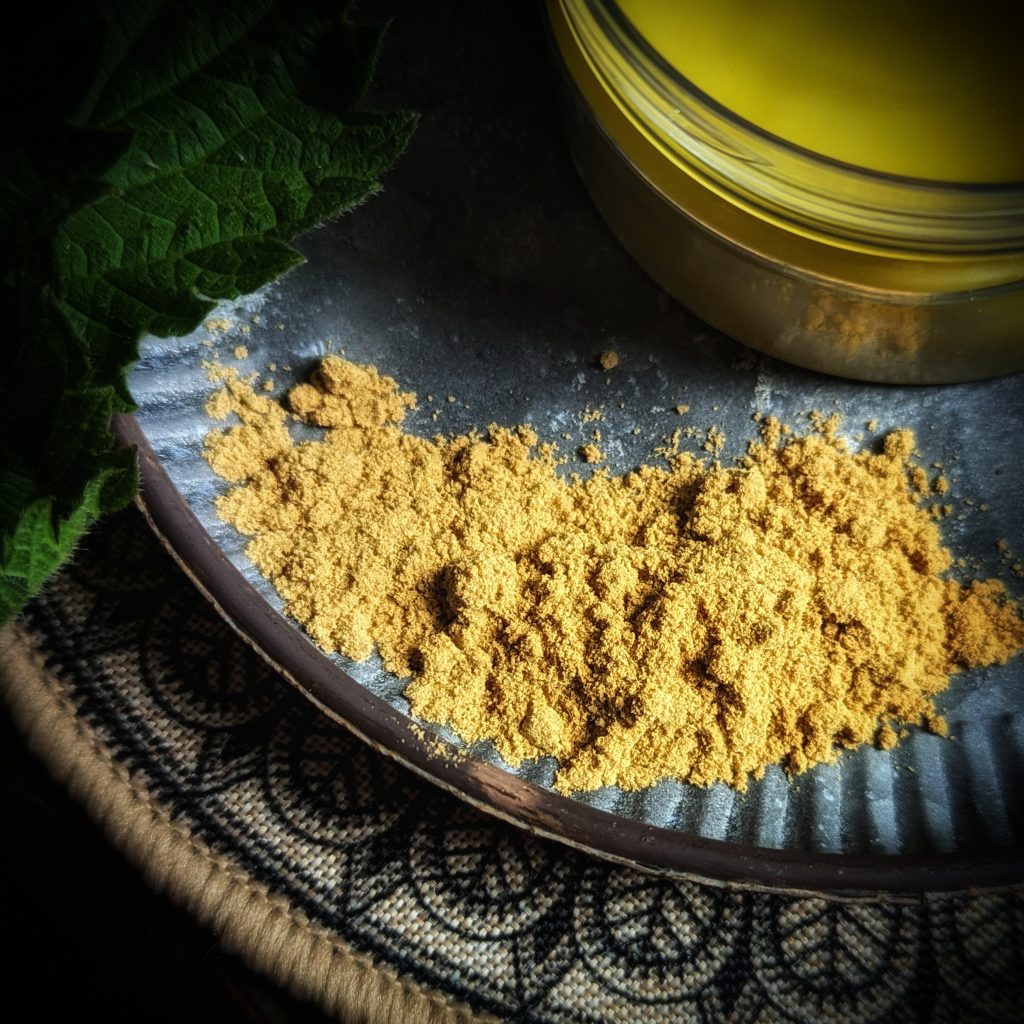
Ginger is Warming!
The warming abilities of Ginger serves 2 very important purposes in herbal healing.
1. It can help stimulate and improve circulation, warming up the inner body as well as the surface of the skin.
2. It is also a very efficient anti-inflammatory, which means it can reduce swelling. Making it a helpful ally for treating symptoms of both rheumatoid arthritis and osteoarthritis. Applying a Ginger balm to the affected area will offer relief to pain and swelling caused by the conditions.
So there you have it ! A dangerous Duo to combat all manner of inflammatory Joint and muscle conditions! Lets Learn How To Make It!…
How To Make Wild Nettle and Ginger Balm
What You’ll need
Affiliate Links
- Glass Heat Proof Jar (I used an old dolmio sauce jar)
- Pan
- Mixing Bowl
- Sieve or Cheesecloth
- Small Empty Jar with Lid.
Handy Nettle Foraging Tools
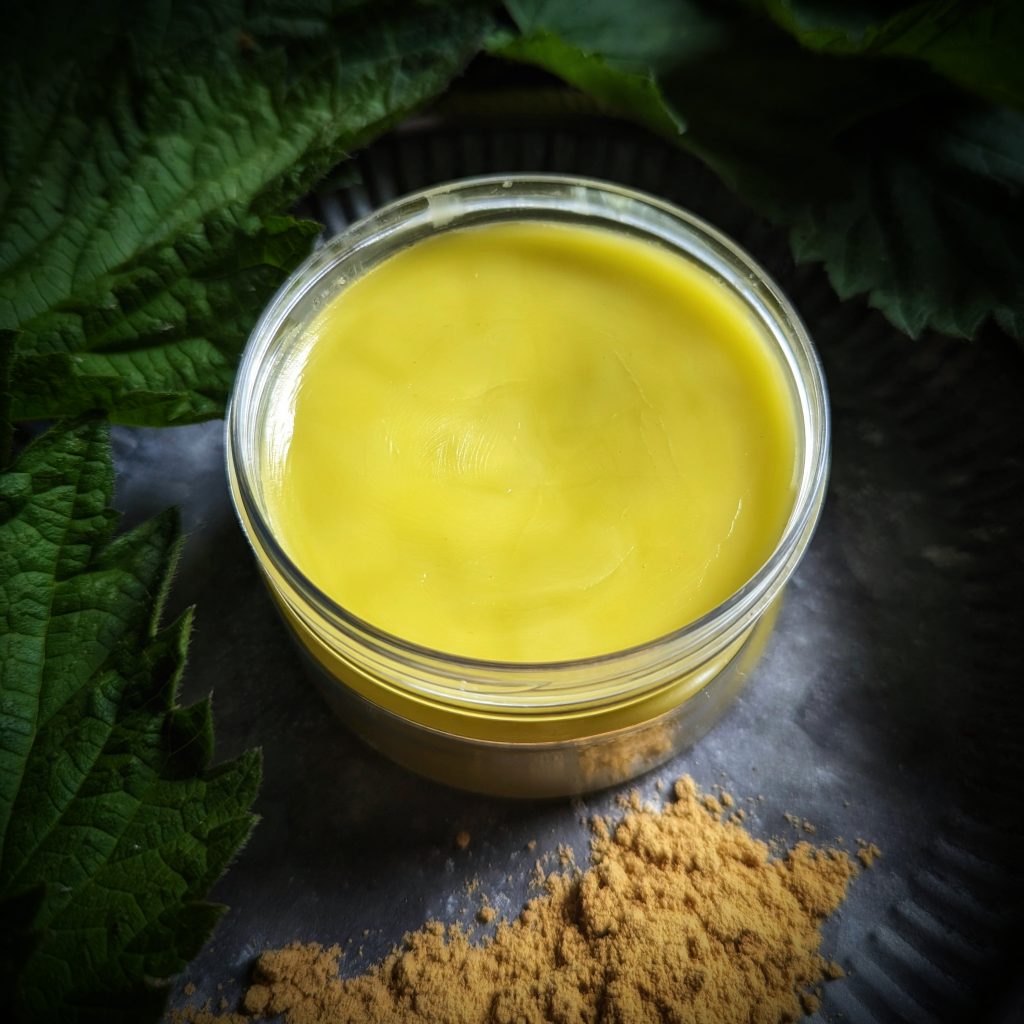
Ingredients
- 2-3 Handfuls of Nettle leaves
- 1 heaped tsp of Ground Ginger
- 240 ml Olive Oil
- 40 g of Beeswax Pellets
Method
1. Gather Your Nettle leaves then leave outside for 1-2 hours for any bugs to crawl out.
2. Dry the leaves in a Dehydrator on the lowest heat setting for 12 hours or lay flat on brown paper for 1 week in a dry, dark environment.
3. Place The Oil, Nettle Leaves and ginger in a large Heatproof Jar and give it a good stir!
4. Put the jar into a saucepan that contains a few inches of water in the bottom. *We are trying to make a double boiler environment for the Oil infusion
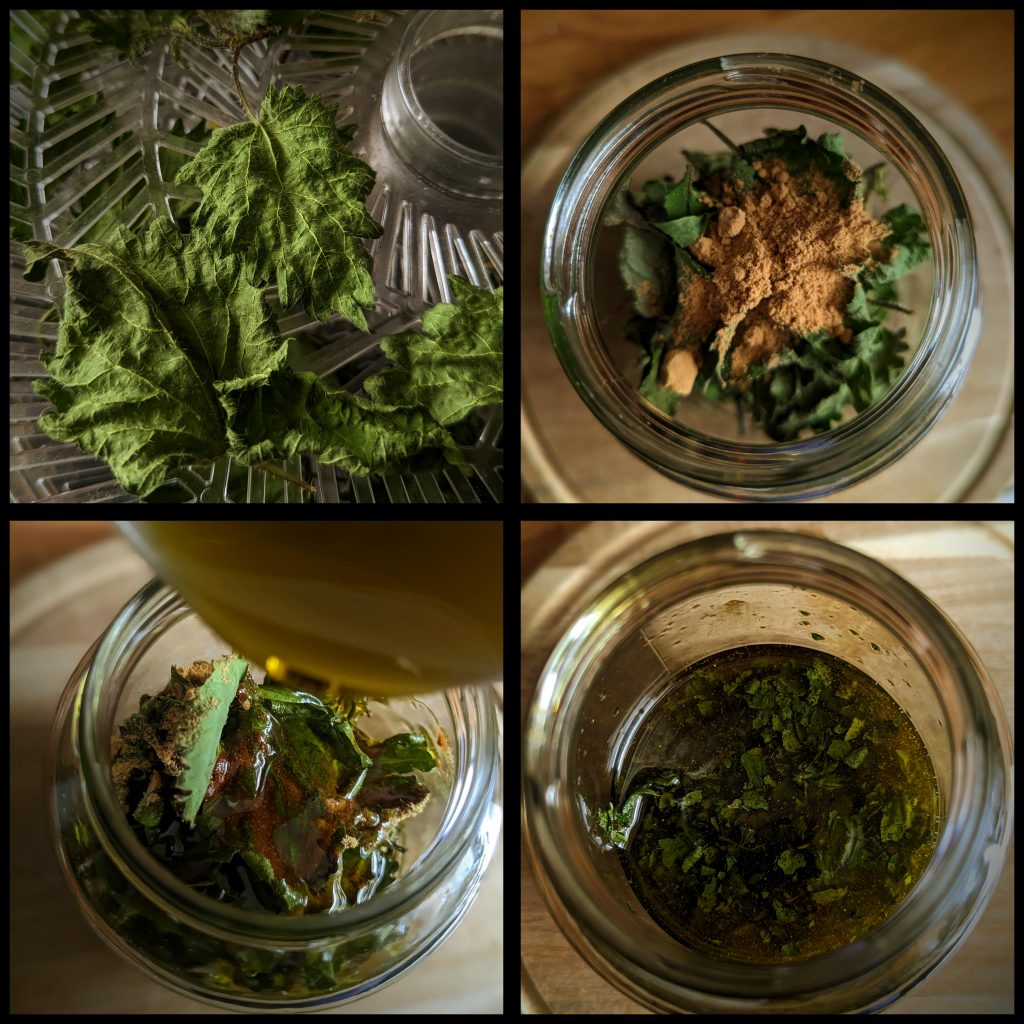
5. Set a medium Low Heat and simmer for around two hours. * We want a nice slow heat infusion, the indirect heat from the water will combine all the goodness from the 3 ingredients together
6. Keep an eye on the water level in the pan, if it starts to evaporate and lessen, top up with hot water and continue the infusion
7. After 2 Hours remove the pan from the heat and carefully lift the jar from the pan with a tea towel or similar to protect your hands-it will be hot! Pour the oil through a sieve or Cheesecloth,( separating the leaves from the oil) and into a glass mixing bowl below.
8. With the back of a spoon press all remnants of liquid from the leaves into the mixing bowl, or alternatively squeeze the cheesecloth to expel liquid.
9. Add the beeswax Pellets to the oil and place the bowl on top of a pan of boiling water over a medium heat (make sure the water level does not touch the bottom of the bowl)
10. Wait for the wax to melt so no remnants are visible, take of the heat
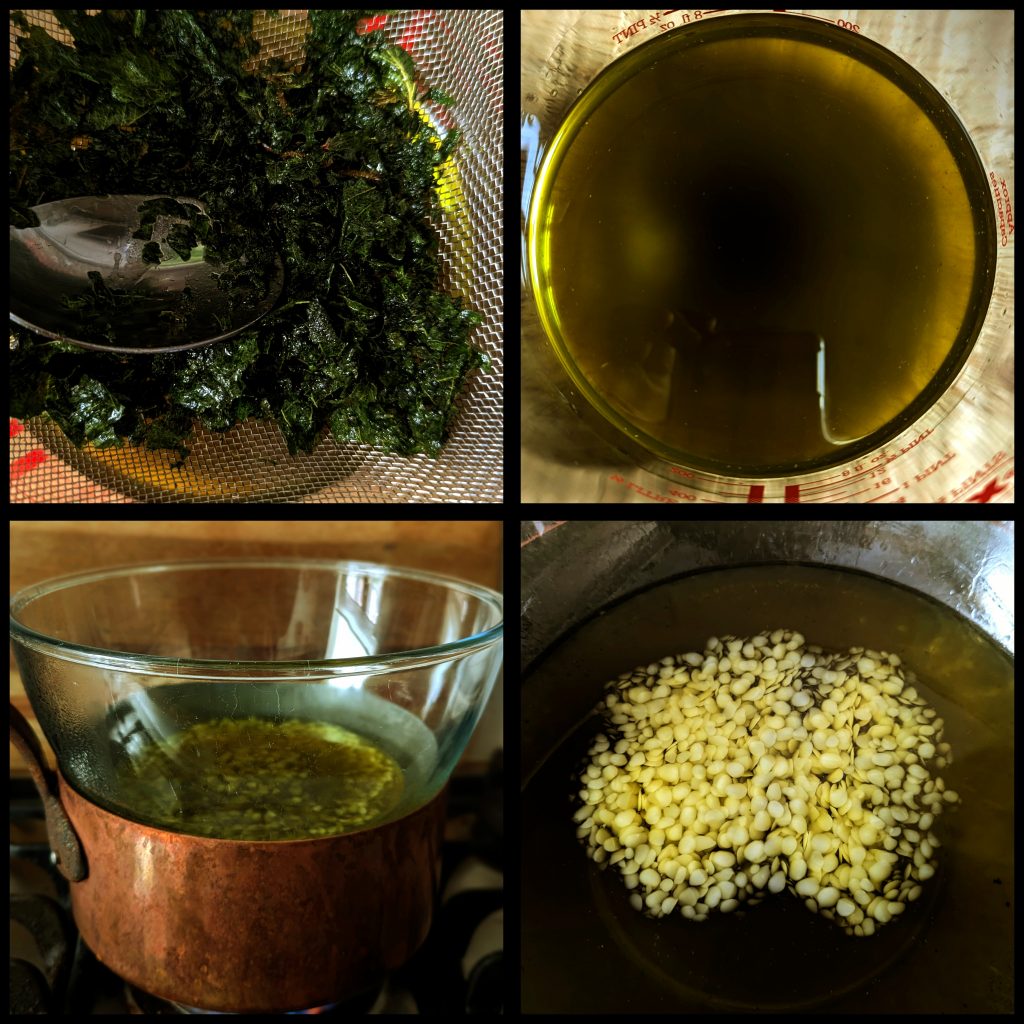
11. Immediately pour the liquid into a clean jar before it begins to set* Be very careful it will be hot
12. Almost immediately you will see the oil start to set in the jar, leave to set at room temperature for around 1 hour
13. Screw the lid on the Jar and use as needed
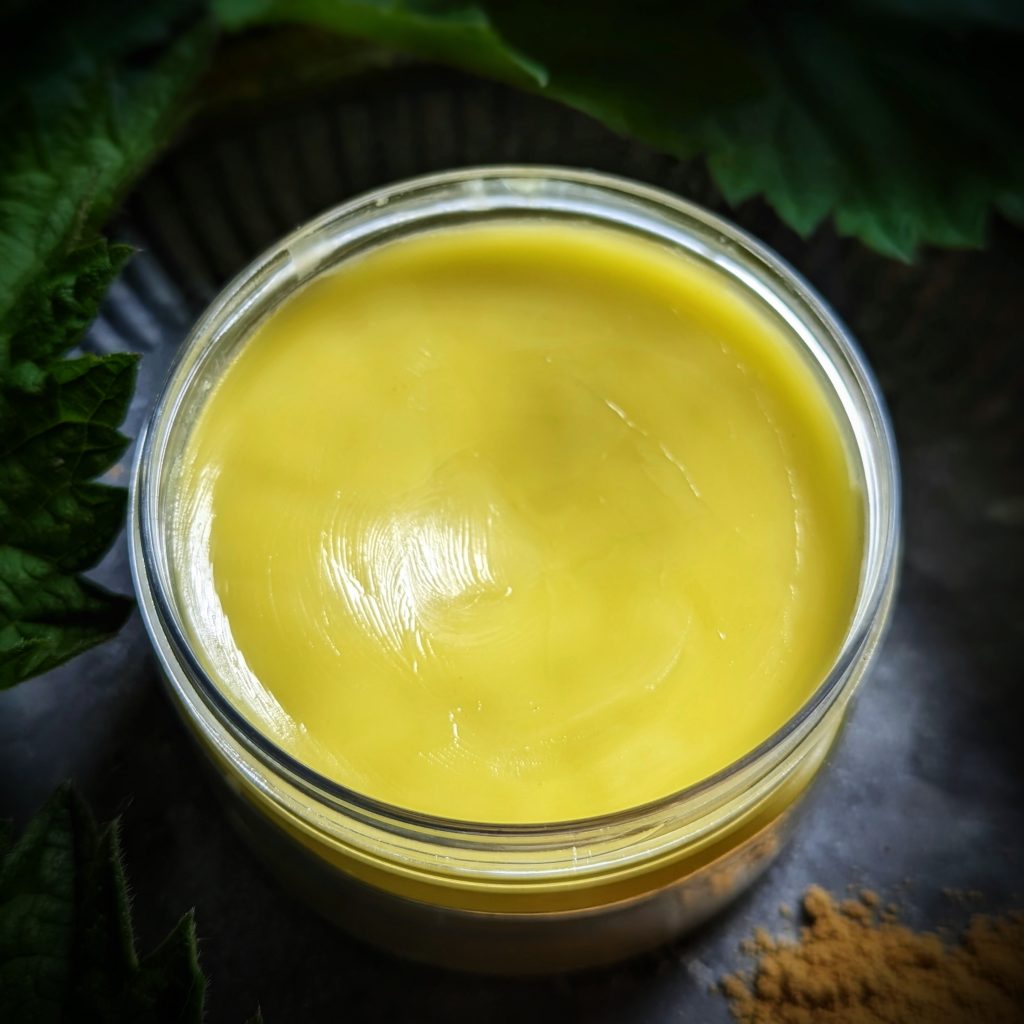
How To Apply Wild Nettle and Ginger Balm
A little goes a long way-Apply a small amount, directly on the skin to the affected area, massaging in until absorbed.
How Long Will Wild Nettle and Ginger Balm Keep?
I would say its good for around 6 months-1 year before you need to make a second batch
Where to store Wild Nettle and Ginger Balm
This Balm will Melt easily if left in a warm environment, so keep in a cool spot away from any radiators…if you live in a particularly warm climate you might want to keep it in the fridge. In the uk I store mine in the bathroom cupboard away from any heat sources.
More Herbal Remedies
- Milk Thistle Tea
- Rosemary Water
- Whipped Dandelion and Calendula Healing Cream
- The Healing Power of The Common Daisy
- The Benefits Of sage
- How To Use Herb Robert
- Nettle Tea
- Raspberry Leaf Tea
- Feverfew Tea
- Horsetail Tea
- Cleavers Tea
Looking For More ‘Homely’ Inspo ?
Have a Nosey Around the Blog! See what i’ve been Baking, Growing and Drinking! Also, pop over and say Hi on Instagram
*Any specific health claim or nutritional claims or information provided on the Website are for informational purposes only. Nothing on the Website is offered or intended to be a substitute for professional medical, health, or nutritional advice, diagnosis, or treatment. This Website is not intended to diagnose, treat, cure or prevent any disease. You assume full responsibility for consulting a qualified health professional regarding health conditions or concerns.

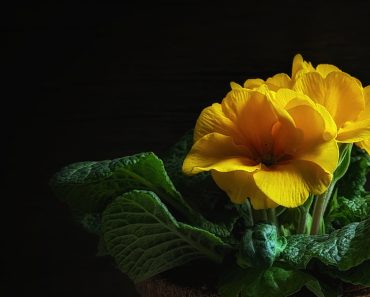
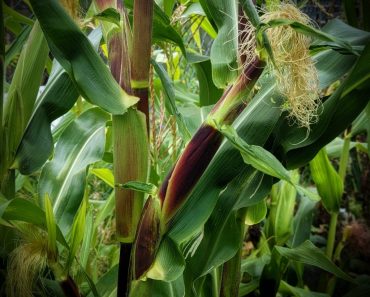

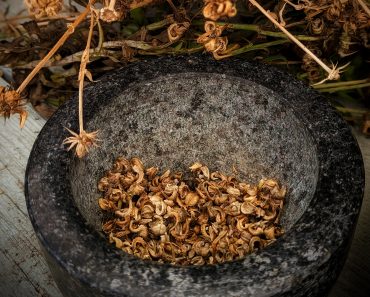
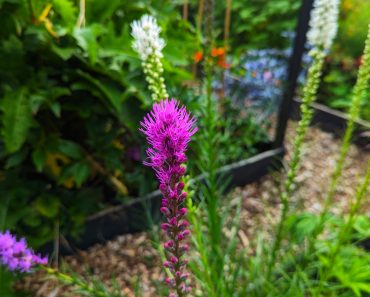
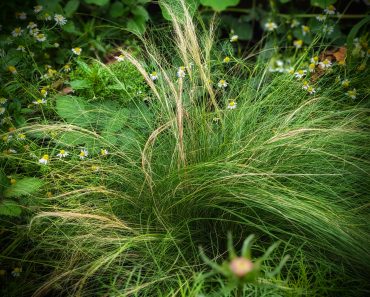
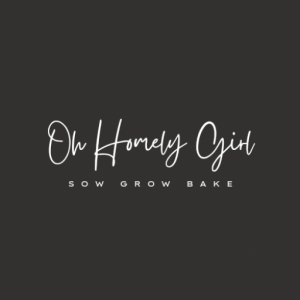
I’m going to try making this. After a day in the garden, a soothing balm sounds ideal. Thanks!